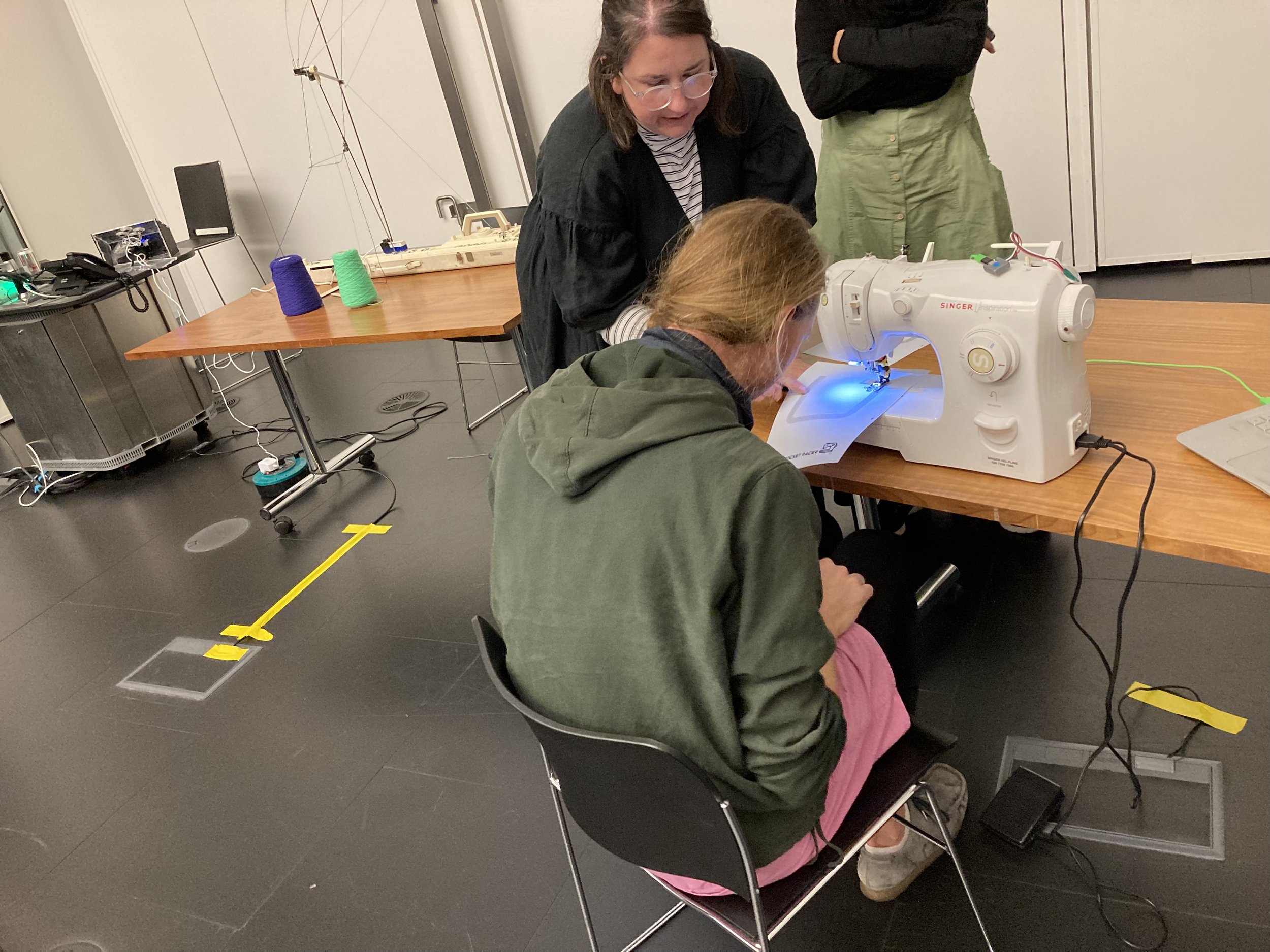Grafting Games as Research Approach: Event Round-up
Two weeks ago MGSN PhD student Gemma Potter showcased her PhD research on crossovers between craft and digital gaming. Gemma is part of the Transformation North West PhD training programme and her research intersects with industry, games, and craft.
Gemma introduces her PhD research on ‘grafting’ as a methodology that explores the intersection of crafting and digital games.
At the event, Gemma shared her research approach, a methodology she calls ‘grafting’, through which she has co-created a series of ‘grafted games’ in order to assess the potential of craft and gaming for the manufacturing industry in the North West to meet challenges and improve workers’ lives.
One of the games was developed in collaboration with artist/technologist James Medd and is called Hazuki Knit. This two-player game is controlled by a hand-powered knitting machine and tests your ability to remain focused and keep rhythm whilst your opponent/collaborator in knitting. Using a simple mechanic inspired by quick time events experienced in games such as Dragon’s Lair, Shenmue, Resident Evil 4, and Metal Gear Rising, the game is easy to pick up but endlessly frustrating when you mess up.
Pocket Racer
Attendees at the event also enjoyed playing Pocket Racer, a grafting game Gemma developed in response to observations made in garment factory Cookson & Clegg (Blackburn). Pocket Racer is a racing game that uses a sewing machine to challenge players to sew around a pocket template as fast as possible. It’s not only about speed though; racers will be disqualified if their stitching is inaccurate and they deviate from the track. The game collects real-time information about competitor’s speed and accuracy, motivating them to score a personal best.
The Manchester Game Studies Network want to thank Gemma - and her co-collaborators - for sharing these games with us and identifying new ways in which games might function as research method as well as in real-life situations to solve problems and support innovation.



